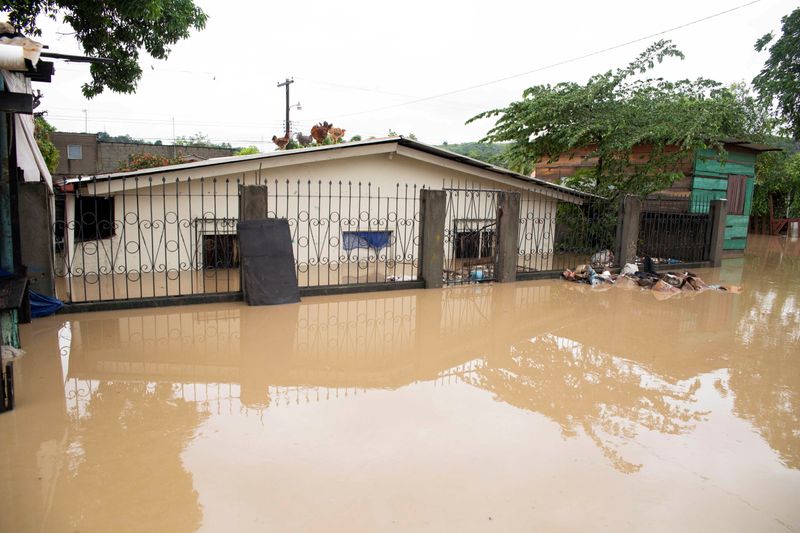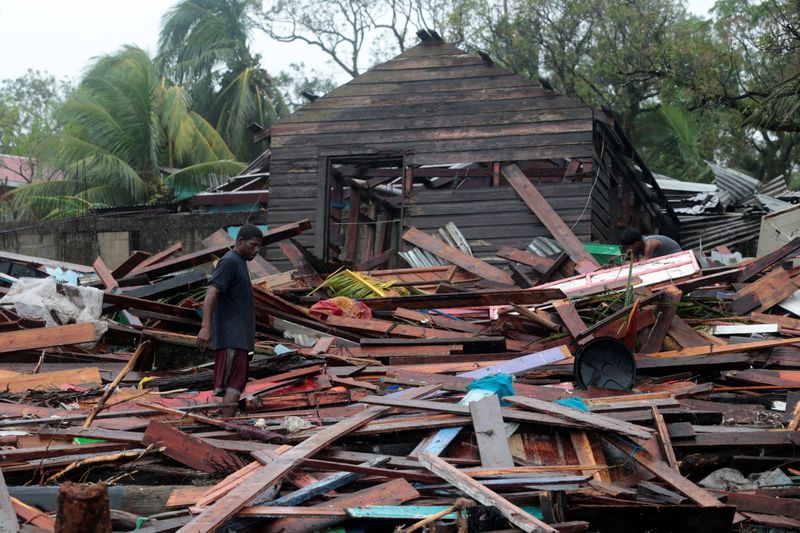By Gustavo Palencia and Ismael Lopez
TEGUCIGALPA (Reuters) - Storm Iota unleashed flash floods in areas already waterlogged with rain, forcing more than 200,000 people across Central America to flee their homes with at least a couple dozen confirmed dead by Wednesday afternoon.
The strongest storm on record ever to hit Nicaragua, Iota struck the coast late on Monday, unleashing Category 5 magnitude winds and inundating villages still reeling from the impact two weeks ago of Eta, another major hurricane.
Iota had largely dissipated over El Salvador on Wednesday, but authorities across Nicaragua and Honduras were still battling to cope with the devastating flooding the weather front had left behind in the deeply impoverished region.
Some of the hardest-hit communities were still inaccessible.
Central American authorities have confirmed 24 deaths so far. The majority of the victims are in Nicaragua, where authorities say a mother and her four children were swept away by a river that overflowed its banks, while a landslide in the north of the country killed at least eight people, with many more missing.
In Honduras, five members of a family, including three children, were buried alive after a landslide swept away their home in the western department of Ocotepeque near the border with El Salvador and Guatemala, according to police.
Two deaths have been confirmed in Panama and one in El Salvador.
In Colombia, authorities say two people died when the storm battered the islands of the country's Caribbean archipelago near the coast of Central America, bringing the storm's total death toll to at least 26 people.
Some 160,000 Nicaraguans and 70,000 Hondurans have been forced to flee to shelters.
Despite the dissolution of Iota, the U.S. National Hurricane Center (NHC) said the storm's remnants could trigger more flooding and mudslides across Central America through Thursday.

The remnants of Iota were drifting west toward the Pacific Ocean, according to the NHC.
